School board needs to follow June’s words on racism with action now, including discussing Princeton Plan
The new Hutchinson School under construction.
Members of the Pelham Board of Education have insisted that they are committed to ending racist practices and institutions within the district’s schools, even going so far as to commission a report by NYU’s Metropolitan Center for Research on Equity and the Transformation of Schools. This report found many fundamental problems with how Pelham operates, arguing that the district fails to fully commit to “equitable and racially just” schools. The recommendations include diversifying hiring, analyzing disparities and revisiting the Princeton Plan at the elementary school level.
Despite their repeated claims to being ready to improve the educational experience for students of color, the trustees hypocrisy stood glaringly clear when Board President Jessica DeDomenico failed to commit to immediately considering the Princeton Plan.
Essentially, the program is a method to desegregate schools. Stemming from an idea first implemented in the town of Princeton, the system gets rid of neighborhood schools, replacing them with schools that house students in a range of grade levels.
A decade ago, when Pelham last considered the idea, the debate was filled with vitriol, hate and racism. One parent cited in the NYU report recalled “barely veiled and not at all veiled racism expressed by parents in that time,” with parents working to avoid “having their kids mix with ‘those kids.'”
It’s important in this debate to clarify the actual facts of the issue because it’s clear that the district has both structural problems perpetuating inequality and hate within its student body.

In the 2019 school year, Hutchinson School was 41% white, while none of the other three elementary schools were below 70%. It’s well known among Pelham alumni that a stigma exists surrounding Hutchinson, with stereotypes following students through graduation.
In recent years, hate has been seen in racial slurs carved in elementary school bathrooms, swastikas in the middle school and casual offensive comments directed at students from their peers. It is clear that such problems are not isolated and are pervasive within the system. After the discovery of the swastikas in Pelham Middle School, Pelham Examiner Senior Editor Michael Salama described being a Jewish student in Pelham, explaining that he was unsurprised at such an occurrence and describing his experiences in the district. Pelham Examiner Washington Bureau Chief Ella Stern noted more issues, including “a lack of spaces reserved for students of color, a lack of black teachers and administrators in the schools,” two points highlighted by the NYU report.
The evidence shows that Pelham has a problem that it desperately needs to fix. I am not advocating for or against the Princeton Plan itself. But a discussion about the approach—a key recommendation from the report which the district itself commissioned—is an important one to have. The decision to kick the can down the road on this, a complex, yet vital idea, represents a significant departure from the rhetoric of the school board and district leadership in June.
Shortly after the death of George Floyd nearly a year ago, the board of education (via its president as approved spokesperson on all issues of any importance) and Superintendent Dr. Cheryl Champ each issued statements on the topic of racial and social justice. Each statement reaffirmed the district’s commitment to working towards reform and responding to, as Champ’s letter put it, the “call for action and change.”
DeDomenico’s letter focused mainly on actions already taken, including having more diverse hiring practices and life-and-attitude-altering “diversity book bags.” It went on to talk broadly about listening to marginalized voices, having important discussions on racial inequity and working together as a community to find solutions.
The board has been quick to tout the “cultural competency”—a term so harmless sounding the inventors of Newspeak in “1984” would love it—component of their strategic plan.
The last ten years of battling racism in the Pelham school district are instructive. One superintendent formed a diversity task force in 2011, another reconstituted it in 2014 and then formed a diversity oversight committee and that committee scheduled a celebration and a showcase three years later and a speaker series after that. Fifty staffers got cultural proficiency training and four new subcommittees were established in 2018-2019 (oh, and a welcome flier was distributed). The whole effort was rebranded cultural competency and enshrined in the strategic plan, with another four new and different subcommittees in 2019-2020.
That’s some decade. Beware the governmental body that does the linguistic and organizational tango.
But it got real, perhaps a little too real for school board members, when the NYU center made its two dozen quite specific recommendations. At a school board meeting where the NYU report was a topic, trustees resorted to non-committal answers rather than actually discussing the report. An open letter written by DeDomenico again failed to address the Princeton Plan, nor any of the other recommended steps from the report, saying the board was “continuing to discuss the audit’s findings with the community in an effort to make sure all viewpoints are heard.”
DeDomenico’s comments and the board’s refusal to discuss the specifics of how to change the culture and behavior in Pelham is a failure to meet the standard set in the original June letter.
This discussion is centered around hypocrisy during racial and social justice decisions, but it’s important to realize that the issue is larger than that, and that hypocrisy is pervasive at the highest levels of the Pelham schools. I’ve seen the district talk a big game on protecting students mental health and then seen them ignore students struggles and ignore requests for help. I’ve seen Pelham school officials talk about being an inclusive environment, only to continue to turn a blind eye to hate ranging from racism and anti-Semitism to homophobia and transphobia in their buildings.
I learned many things in my years in Pelham schools. I met great friends and incredibly talented educators, coaches and administrators. But perhaps the most important lesson I learned was what administration of a school district shouldn’t look like. With a generational opportunity to address racism, the leaders in Pelham need to offer a different look. And action.
Nick Lieggi is a freshman at Oxford College of Emory University and was a member of the PMHS class of 2020. He began his journalism career at the Pelham...



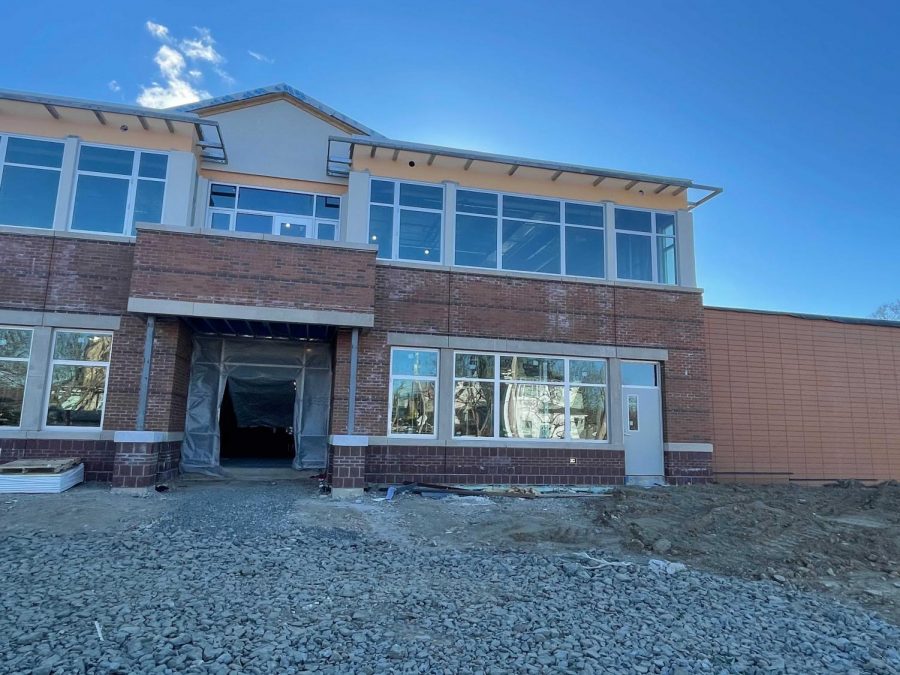


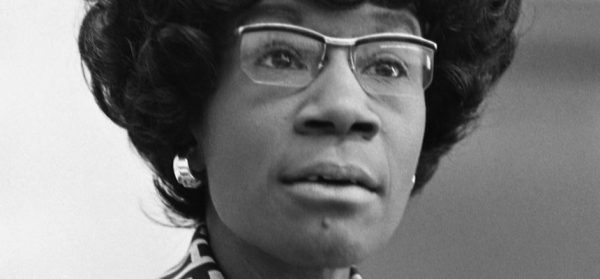

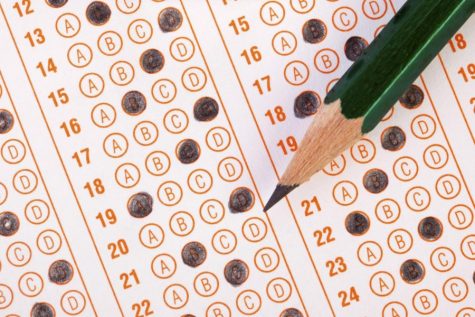
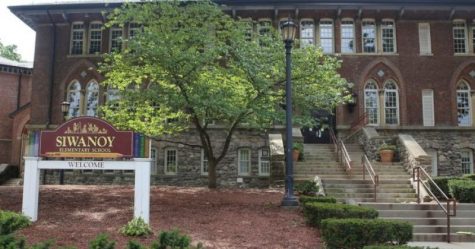
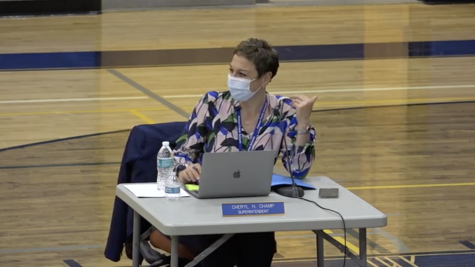
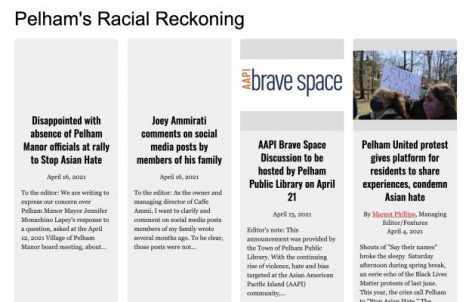
Charles Stern • Jun 28, 2021 at 8:08 am
@Elizabeth J Herbert-Wasson has it right. Zoom out, and you’ll reveal the racism in the artificial municipal boundaries imposed on school systems. Westchester has 40 school districts – a total waste of resources, but that system authorizes white people to fund their schools the way they want to. The white schools are like private systems with a public funding vehicle – local property taxes, along with a charitable trusts (education foundations) on top. So, the white districts stay white and the non-white districts struggle financially and kids don’t get what they need. State aid cannot backfill the inequitable funding. No chicken-hearted politician will ever say all this, but they ALL know it.
Daryl Jackson • Apr 19, 2021 at 12:41 am
I like the “Beware the governmental body that does the linguistic and organizational tango” saying. I lived in Pelham well over 40 years, and linguistic and organizational tango is Pelham’s dance of choice.
I have longed believed that any study done within Pelham is only done for show. Especially if the people of the town don’t like what they hear back from said studies. That’s when you get the “cultural competency” type rhetoric, to hide what’s really behind the hypocrisy. It has been this way for years!! The list is long.
Honestly I don’t see that changing any time soon!
Nice article Nick, well done.
Toby Marxuach-Gusciora • Apr 3, 2021 at 9:48 pm
Nick this was a well written article that stated real facts. Thank you
Elizabeth J Herbert-Wasson • Apr 3, 2021 at 6:36 pm
To start: I am not inherently opposed to the Princeton plan.
But… having grown up in an urban Southern school district during busing and having been a school administrator in a diverse elementary school in the Pacific Northwest, I just want to caution the idea of the use of forced structural integration as a panacea. It is really important not to minimize the existence of racist power dynamics within integrated institutions. Looking to the middle school and high school is a very local example and looking to the issues that still pervade neighboring diverse communities such as New Rochelle is another. Many of the specific incidences of hate you mentioned as happening in Pelham schools the past few years have also happened in some of New Rochelle’s most integrated schools around the same time. There is also a history of detrimental impact on communities and individuals of color when existing institutions are destabilized. The Dunbar School in DC post Brown v BOE is one example. Further, the benefits of multi grade schools for all students is worth considering. The impact on families who walk their children to school is also a factor. A more organic push for further integration of the more homogeneous schools would be to look at the housing zoning laws within those school zones. An increase in affordable housing within these zones could encourage economic diversity at the least. Pedagogical shifts that are less norm referenced could also make an impact on creating a more inclusive culture.
As a bit of perspective: if this were a Southern district post Brown, the discussion wouldn’t be in whether to integrate an already fairly homogeneous district. The conversation would be on how to consolidate with Mount Vernon. If individuals and communities of color are still seen as marginal within a broader community, they will still be marginalized within the more diverse institutions. If the community isn’t ready to have a conversation like that, the vitriol will likely continue if forced integration is pursued. The recipients will just continue to be the kids in their schools and classrooms.